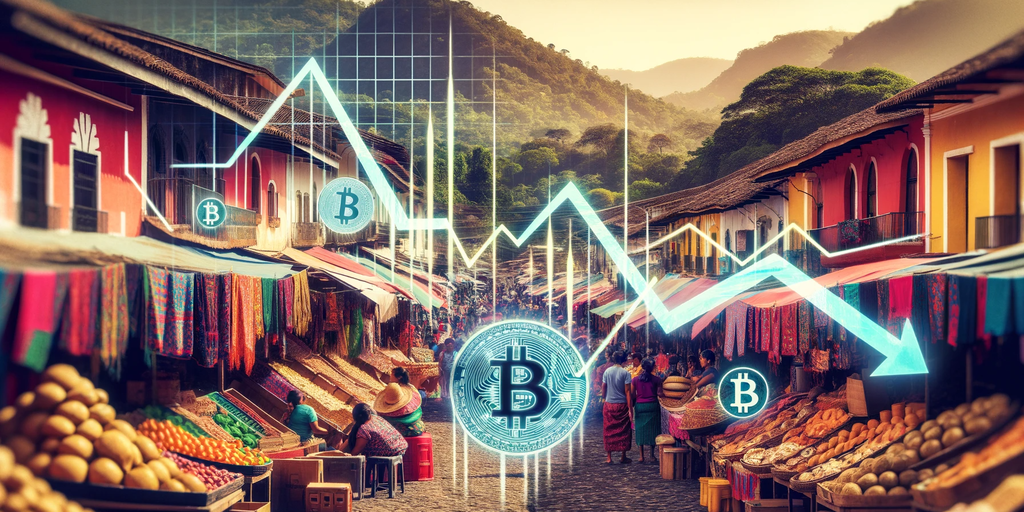El Salvador ‘s government loves Bitcoin, but Salvadorans? Not so much. The openly Bitcoin-friendly nation saw a sharp decline in cryptocurrency payments in 2023, despite Bitcoin’s price surge and significant governmental promotion efforts.
According to the Central Bank of El Salvador, the amount of money Salvadorans living outside their country sent to their local relatives—known as “remesas” or remittances—plummeted to $82.93 million from $116.4 million in 2022, in a stark contrast to the historical high of $8,181.8 million in all forms of family remittances—a 4.6% increase from the previous year.
According to official statistics, Salvadorans sent over $30 million less in crypto when compared to the previous year, and only 1% of the total remittances were made in crypto during all of 2023. The ratio is even worse than the 1.7% registered in 2022.
Under President Nayib Bukele’s leadership, El Salvador has engaged in aggressive campaigns to embed Bitcoin into the country’s financial fabric, collaborating with Bitcoin proponents such as Max Keiser, Jack Mallers, Saifedean Amous, and major exchanges like Binance and Bitfinex.
Despite these high-profile alliances—and the nation’s status as the first to declare Bitcoin as legal tender—the public’s embrace of Bitcoin remains tepid. A recent survey indicated that 88% of the population did not use the cryptocurrency in 2023, and interest in crypto seems to go down as time passes.
The financial maneuverings of the Bukele administration, especially where Bitcoin is concerned, have been shrouded in secrecy and controversy. The methodology of Bitcoin purchases, the nation’s actual Bitcoin holdings, and the wallet addresses remain undisclosed, raising questions about transparency and accountability in the country’s crypto endeavors.
These practices have just served to heat up the country’s political ecosystem, which right now is tinted by an authoritarian aura in which Bukele controls the government, the congress, the courts, and all the political institutions. Further complicating the landscape, Bukele’s governance has been marked by contentious moves, including extending his presidency beyond the constitutionally allowed terms and enforcing an indefinite state of emergency to combat gang activity.
These actions, coupled with the rushed process of Bitcoin adoption, paint a picture of a governance style that often prioritizes swift action at the expense of deliberation and transparency.
The paradox of El Salvador’s remittance landscape is stark. The country has seen notable growth in traditional banking channels and alternative remittance methods. In fact, the Central Bank’s data reveals a diverse and robust remittance ecosystem, challenging the narrative that Bitcoin would revolutionize the way Salvadorans receive money from abroad.
Despite El Salvador’s pioneering role in Bitcoin adoption, it basically stands alone on the global stage. Efforts by other nations, like the Central African Republic, to declare Bitcoin as legal tender met with failure shortly after their inception.
Venezuela, another politically tumultuous country, also legalized the use of cryptocurrency as a means of payment—but the country’s official token is on the brink of a possible shutdown. Crypto adoption there has been in sharp decline in recent years after the government canceled its restrictions on the dollar, effectively linking official rates with those from the black market.
Edited by Ryan Ozawa.




